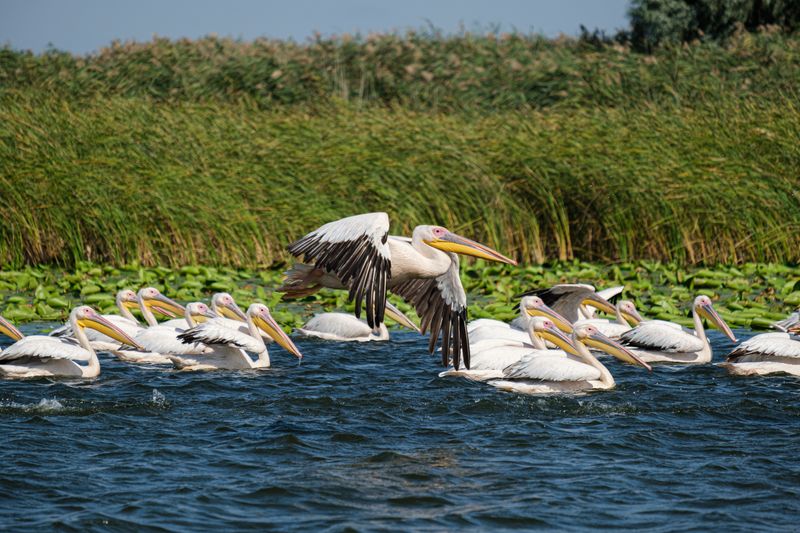Table of Contents
Nigeria’s New Government Must Ensure Shell‘s Planned Sale Protects Human Rights in Niger Delta
The incoming Nigerian government, to be led by President Bola Tinubu, must prioritize the protection of human rights in the Niger Delta region following Shell‘s planned sale of its operations. Amnesty International has expressed concerns that the sale will deny people access to adequate remedy and increase the risk of further human rights abuses in the area. The region has suffered from oil pollution, and Amnesty International has documented numerous human rights abuses resulting from the oil contamination that has plagued the region since the 1950s when Shell began operations there.
Recommendations for Safeguards and Actions
Amnesty International has released a new report titled “Tainted Sale?” that recommends several safeguards and actions to help protect the rights of people potentially affected by Shell’s planned disposal of its onshore oil interests in the Niger Delta, reportedly worth about $3 billion. As a condition of sale, Amnesty International is urging the Nigerian Government to require Shell to provide a full assessment of all existing pollution in the delta, ensuring that it has provided satisfactory remediation for any damage and that local inhabitants’ concerns about the sale process are fully addressed.
The organization also recommends that new purchasers of the assets must be committed to transparency, environmental compliance, consultations with communities, and limiting greenhouse gas emissions, with Shell acting as a guarantor to ensure any new purchaser is capable of remediating damage caused by future spills.
The Devastating Environmental and Human Rights Effects in the Niger Delta Region
For over 20 years, Amnesty International and its partners have conducted research in the Niger Delta region. They have found that Shell‘s operations have come at the cost of harming human rights, with poorly maintained pipelines and wells causing hundreds of spills a year and extensive oil contamination. This has resulted in ruined groundwater and drinking water sources, contaminated agricultural land and fisheries, and damaged the health and livelihoods of many inhabitants.
An academic study found that oil spills that occur within 10km of a mother’s place of residence in the Niger Delta doubled neonatal mortality rates and impaired the health of surviving children. Shell must take steps to ensure that its divestment plan does not worsen the plight of the Niger Delta’s inhabitants who have already been impaired by this devastating pollution.
Shell Is Not Solely Responsible for the Environmental Damage
Shell disputes the allegations of its impact on the Niger Delta, arguing that it complies with regulations and has made numerous improvements to prevent and clean up oil spills in recent years. Other actors, such as federal and state authorities, must also share responsibility for ensuring that Shell‘s divestment plan does not lead to further human rights abuses.
Phasing out Fossil Fuel Production in the Niger Delta and the Climate Impact
According to the Intergovernmental Panel on Climate Change, global temperatures will rise by more than the agreed-upon limit of 1.5C versus pre-industrial levels without accelerating the phasing out of worldwide fossil fuels. After decades of exploitation, retiring production in the Niger Delta can be a step towards this goal, rather than finding buyers to extract the last drops of oil from a region rife with environmental damage.
Editorial: Protecting Human Rights in Economic Activities
The issue of human rights in economic activities is a widespread problem. The Amnesty International report on Shell‘s planned sale in the Niger Delta highlights the challenges of implementing human rights safeguards in large multinational corporation operations.
The situation in the Niger Delta region is not an isolated case. Many corporations have operations in regions where human rights are at risk, and human rights complaints have spiraled in areas such as mining, agriculture, and technology. As such, the international community must ensure that human rights protection is always considered a precondition of any economic activity.
The Role of Government in Protecting Human Rights in Economic Activities
The Nigerian Government must prioritize human rights protection in all its economic endeavors in line with the UN Guiding Principles on Business and Human Rights. This requires proper regulation and enforcement to ensure corporations do not act without respect to human rights.
It is imperative that the Nigerian government ensures the full implementation of the Amnesty International recommendations, including requiring Shell to assess all existing pollution in the Niger Delta region, ensure remediation for damage, and address local concerns. Additionally, the Nigerian government must ensure that new purchasers provide transparency, limit greenhouse gas emissions, and are committed to environmental compliance and consultations with communities. Furthermore, new purchasers must be capable of remediating any damage caused by future spills, with Shell acting as a guarantor as a condition of the sale.
Conclusion and Advice
Protecting human rights in economic activities is essential to ensure sustainable and equitable economic growth. The Nigerian government should prioritize the safety and well-being of its citizens in any economic activity, and corporations must be held responsible for any damage caused. This requires international collaboration and regulation to ensure that human rights are protected in all economic activities worldwide.
As individuals, we can also contribute to protecting human rights in economic activities by exercising our power as consumers to support corporations that prioritize human rights protection and hold those that don’t accountable for their actions.

<< photo by Andrei Prodan >>
You might want to read !
- Assessing Nigeria’s Human Rights Record: Recommendations for the New Government
- Japan’s “Hostage Justice” System: A Violation of Human Rights.
- Cambodia’s Crackdown on Land Rights Activists: A Dangerous Backslide
- “UN urged to take action against fossil fuel industry’s interference in Global Plastic Treaty”
- Italian Citizens and Organizations Band Together to Sue ENI for Violating Human Rights and Contributing to Climate Change